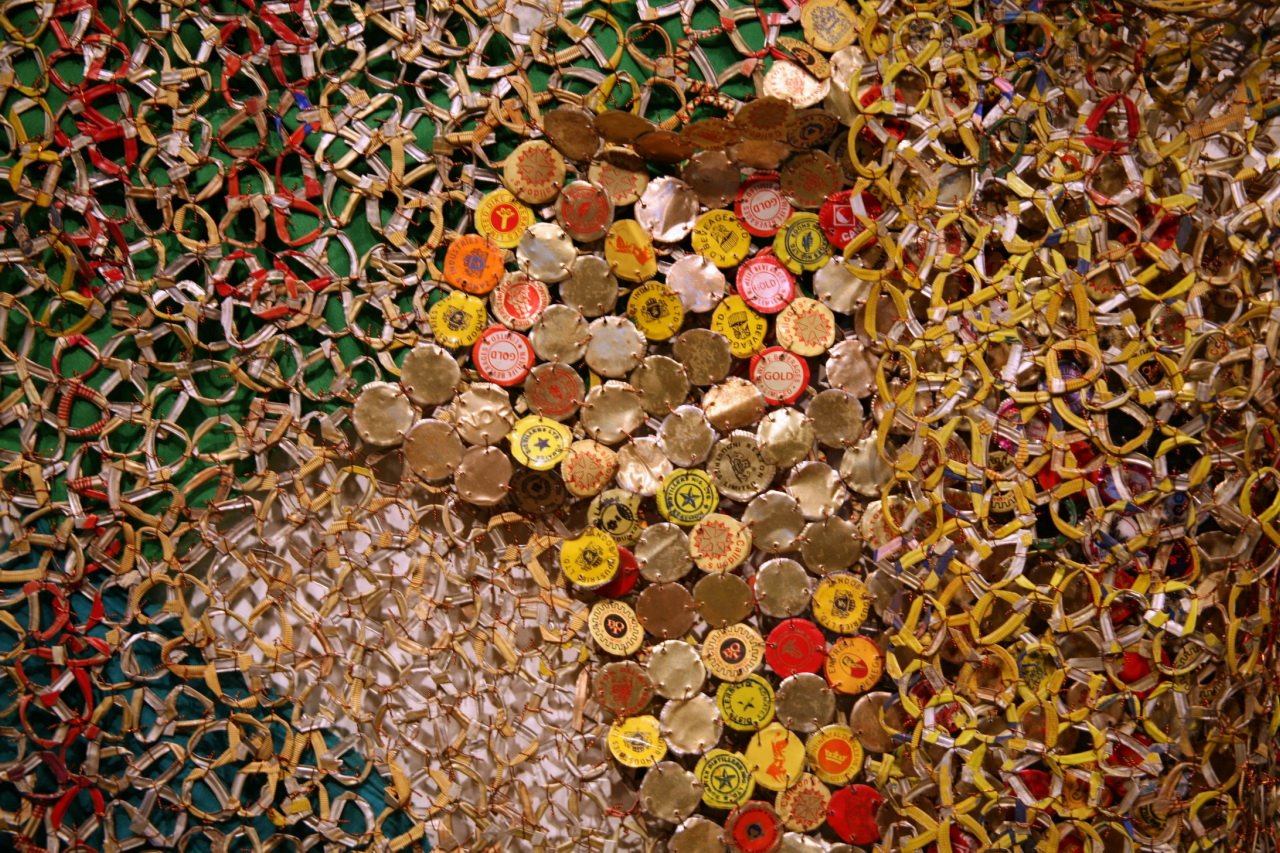
Understanding Art
with
Dr Kathleen Olive & Dr Nick Gordon
Starting March 2022
COURSE DESCRIPTION
Walking around an art gallery, it’s impossible not to be struck by all the diverse styles. Behind these lie materials, practices and techniques that often transcend art historical times and places. In this course, take a closer look at six different approaches to art-making, from Renaissance Italy to contemporary Australia.
Looking at art like this will develop your understanding across a variety of collections and exhibitions in contemporary galleries and museums. Considering the great Hiroshige can help you see more in the work of Margaret Preston, for example, and learning about the extraordinary and surprising range of materials used by artists from Utopia and Yirrkala will deepen your appreciation of the Australian art story.
Throughout the course we’ll return to key themes, such as the collaborative nature of artistic practice, the trope of female competition, and the enormous wellspring of artistic ingenuity that can see a sardine can as both artistic surface and rich cultural association.
The course comprises weekly 1-hour recorded lectures and weekly 1-hour guided discussion sessions. The lectures focus on the historical context and on explaining the media and techniques, as well as the relationships between the artists under discussion. The guided discussion sessions will focus on ‘reading’ a selection of works by the artists.
There are two options for booking on this course: you can choose to access the recorded lectures + discussion classes or, if you prefer, listen to the recorded lectures only. Discussion groups are limited to 10 participants.
REQUIREMENTS
This course does not require any assumed knowledge, only a willingness to learn and an interest in art. Sessions require access to ZOOM, a device with a camera (such as a tablet or computer with a webcam), and an internet connection.
COURSE DATES
6 x weekly 1-hour recorded lectures + 6 x weekly 1-hour live guided discussion sessions.
Discussion sessions
Tuesdays 9:30am starting 1 March
Wednesdays 9:30am starting 2 March
Wednesdays 7:00pm starting 2 March
Fridays 9:30am starting 4 March.
Price
Lectures + Discussion sessions: $220
Lectures Only: $120
If you would like to access the lectures only, please ensure you use the “lectures only” booking form below.
COURSE CONTENT
Week 1: The Age of Fresco (Kathleen Olive)
Lecture: Working in a large scale on a wall requires specialised knowledge and collaborative organisation. From Giotto in the Middle Ages to Vasari in the High Renaissance, learn how Italian wall painting cycles demonstrate the power of teamwork and triumph of technique, how they’ve been preserved, and where the art form has reappeared in contemporary Italy.
Discussion: Giotto, Raphael and Sardinian murales
Week 2: Japanese woodblock printing (Kathleen Olive)
Lecture: Stylistically, Japanese woodblock prints by masters such as Harunobu, Hokusai and Hiroshige showcase a national predilection for working with dynamic lines and so-called ‘negative space’. A commercial affair, they were the work of a professional équipe, a highly intellectual conception, and a hinge between modern art in the East and West.
Discussion: Harunobu, Hokusai and Hiroshige
Week 3: Stained Glass (Kathleen Olive)
Lecture: Most of us associate stained glass with the great religious cycles of medieval churches in England and France. Its manufacture was one of the most important proprietary crafts of the pre-modern world, and in the 20th century it was revived to tell modern stories of spiritual power, suffering, war and transcendence.
Discussion: Henri Matisse, Marc Chagall and Gerhard Richter
Week 4: Innovation in contemporary Indigenous art (Kathleen Olive)
Lecture: Batik dyeing, reclaimed toner ink, acrylics: contemporary Indigenous artists are adding a fascinating range of new techniques and media to an ancient mastery of natural ochres, grasses and barks. The complex and spectacular results are storming major prizes and the international art market, and have even been used as evidence in landmark legal cases.
Discussion: Emily Kame Kngwarreye, Dhambit Munungurr and Eunice Djerrkngu Yunupingu
Week 5: Found materials (Nick Gordon)
Lecture: Non-traditional materials have become a mainstay of contemporary art, from Italy’s Arte Povera movement to El Anatsui and Fiona Hall. But the choice of materials is rarely accidental, and this lecture takes a look at how artists choose particular materials to amplify the meaning of their work.
Discussion: Fiona Hall and Rosalie Gascoigne
Week 6: Street art (Nick Gordon)
Lecture: In the past decade, street art has gone from being a peripheral set of movements to one of the most vibrant forms of contemporary art - just think what a Banksy or Basquiat is worth these days! This lecture surveys the different forms of street art, from spray paintings to posters, poetry and urban interventions, revealing the interaction between ‘high’ art and street art.
Discussion: Clet Abraham in Florence, Banksy around the world, and Yvonne Audette in Australia.
LECTURERS
Dr Kathleen Olive is well known to Italian enthusiasts for her lectures and seminars, including popular short courses at the WEA, Sydney, and national lectures for the Australian Decorative and Fine Arts Association (ADFAS). She has worked as a cultural tour leader for over 15 years, with deep expertise in Italy, and in France, Spain and Japan. Her published research on a Renaissance Italian manuscript, the so-called Codex Rustici, was presented to Pope Francis I in 2015 as the official gift of the Florentine Curia.
Dr Nick Gordon is a cultural historian and artist with an encyclopedic knowledge of European and Australian art. His research on the Italian Middle Ages and Renaissance has won numerous academic scholarships and prizes (including a University of Sydney medal in History and a PhD). He has over fifteen years’ experience speaking about history and art history, from ancient to contemporary, to university and adult audiences, and regularly takes small groups to major modern and contemporary art events, including the Venice Biennale and Art Basel.
Want to Catch up?
Get in touch with us at nick@theshortcourse.org and we can provide you with access to the recorded lectures from this course.





